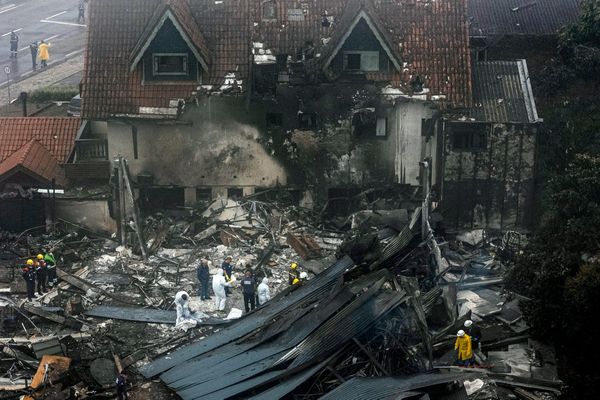
Just because a company provides a key service does not mean it will succeed financially.
That has been clearly evident in recent months as RiteAid's struggles have led the key healthcare and pharmacy brand to close hundreds of locations.
Sometimes financial pressures can drag down a business even when it has widespread public support. In some cases, you can blame the lingering impact of the covid pandemic.
Related: Iconic grocery chain closing underperforming stores
You could argue that covid-related shutdowns contributed to the death of Bed Bath & Beyond, Tuesday Morning and Christmas Tree Shops. All three of those companies took on expensive debt to make it through the pandemic, and sales never recovered to a point where they could pay their bills.
In other cases, companies misjudged their popularity given the unique conditions the pandemic created. Peloton, for example, became incredibly popular during the period when gyms were closed or operating under strict rules.
Owning one of the company's connected exercise bikes became a status symbol, but it was a boom that pulled demand forward. Only so many Americans want a connected-fitness product that comes with a monthly fee that's higher than that of many gym memberships.
Most of those people bought a Peloton product during the darkest days of covid, after which demand for the company dried up.
Not all financial struggles can be attributed to covid. Some companies, even those that meet a key consumer need, can fail, and that has happened with a large health-care provider.

Image source: Pixabay.
Senior healthcare company files Chapter 11 bankruptcy
The need for senior-living facilities is expected to grow as more Americans turn 65 and older.
"More than 3,000 new nursing homes could need to be built to keep up with demand as the older population expands," according to Senior Living.
That number will be challenging to meet given the industry's difficulties.
"Building new nursing facilities is easier said than done, partly because nursing homes are notoriously challenging to staff," the website reported.
"This problem has gotten worse due to the current economic situation. According to a survey by the American Health Care Association and National Center for Assisted Living, 87% of nursing homes deal with moderate to high staffing shortages, and 61% limit new admissions due to workforce issues."
More bankruptcy:
- Popular restaurant chains consider Chapter 11 bankruptcy, liquidation
- After Chapter 11 bankruptcy, liquidation, retail chain finds a buyer
- Key grocery chain brand files Chapter 11 bankruptcy
Intense demand for its services has not helped one leading senior-care provider.
"LaVie Care Centers, LLC, an operator of 43 licensed skilled nursing facilities in five states, has taken steps to implement a financial restructuring designed to improve its capital structure and position the company for long-term success," the company said in a news release.
The moves the company has made and plans to make will not affect its operations.
"This process not only ensures that the company can continue operating its existing portfolio in a seamless manner, but it also addresses its legacy liabilities associated with previously divested operations," it added.
"To facilitate this process efficiently and with minimal disruption to ongoing operations, the company has filed voluntary petitions for relief under Chapter 11 of the U.S. Bankruptcy Code in the U.S. Bankruptcy Court for the Northern District of Georgia."
Related: Popular children's brands face involuntary Chapter 11 bankruptcy
LaVie expects to continue operating
When a retail chain or a restaurant files for bankruptcy or goes out of business, it's not a life-or-death situation. That's not the case with La Vie, given that it provides care to tens of thousands of senior citizens.
Because of that, the company has tried to assure its customers that it will survive the Chapter 11 bankruptcy process and will continue operating normally during it.
"LaVie Care Centers and the current facilities in its portfolio will continue operations as normal, ensuring that all necessary care and treatment will be provided to its residents," the company said.
To fund its operations during the Chapter 11 bankruptcy process, the company secured $20 million of debtor-in-possession financing from key stakeholders, including affiliates of Omega Healthcare Investors, the company's largest landlord and secured lender.
"Following court approval, this new DIP financing, combined with cash on hand and cash flow generated from ongoing operations, will support the business to satisfy its ongoing obligations, and enable the company to remain focused on delivering quality care during the court-supervised process," LaVie added.
"Today's announcement is an important step forward to strengthen the company's financial footing in order to combat some of the challenges faced by the skilled nursing industry generally since the covid-19 onset, as well as potential looming challenges ahead," said M. Benjamin Jones, the company's newly appointed chief restructuring officer.
Related: Veteran fund manager picks favorite stocks for 2024







